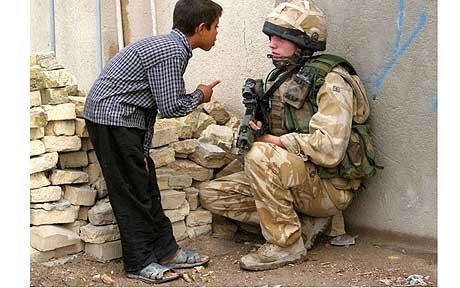by Gideon Rachman The West’s instinctive reaction when an international crisis breaks out is to ask two questions: what should we do; and who are the good guys? Yet, when it comes to the disintegration of Iraq, the gloomy truth is that there are no good guys to back, and no decent policy options
The West’s instinctive reaction when an international crisis breaks out is to ask two questions: what should we do; and who are the good guys? Yet, when it comes to the disintegration of Iraq, the gloomy truth is that there are no good guys to back, and no decent policy options. All we have are bad choices, confusion and tragedy. That makes it vital that policy be made with humility and a clear sense of priorities.
The news that the Islamic State of Iraq and the Levant group, known as Isis, has seized Mosul, the country’s second-largest city, and may be heading for Baghdad, sounds like a clarifying moment. After all, this is an Islamist group that even al-Qaeda regards as intolerably vicious. The Iraqi central government, led by Nouri al-Maliki, is clearly preferable to Isis.
Yet al-Maliki’s closest ally in the region is Iran, a country the West still regards as the greatest strategic threat in the Middle East. And when it comes to Syria, Isis and the West actually share a common goal — the overthrow of Bashar al-Assad.
So, if the defeat of Isis is now the West’s primary goal, does that mean we have to make common cause with the Syrian government, Iran and Russia?
A policy that focuses above all on "homeland security" might lead western governments reluctantly to conclude that the continued rule of Assad in Syria is the lesser of two enormous evils. For all its sins, the Assad regime has never directly targeted the West.
But Assad is also so immersed in blood that it would be a huge blow to the West’s self-image to make common cause with him. One of the strengths of liberal democracies is that they try to support values, as well as interests.
Well-meaning liberals try to square the circle by arguing that military aid should be channelled to the more liberal forces fighting both the Assad regime and Isis, simultaneously. There is no doubt that there are some brave and admirable people in the Syrian opposition. But it is a huge leap of faith to believe that, if only the West piles in behind them, things will get better. On the contrary, there is plenty of evidence that "liberals" have little chance of holding on to power after the fall of a Middle Eastern dictatorship.
Those who favour direct western military intervention in the conflict — and those who are opposed to it — are mining recent history to make their case. It is true that a US-led coalition invaded Iraq in 2003 and that the country is now a fractured, bloody mess, with a rampant Islamist movement. On the other hand, the West did not intervene in Syria and that country is also a fractured, bloody mess with a rampant Islamist movement. Pity the poor policy maker who has to make sense of all that. The temptation is to fall back on cold-blooded realism and to say that the only relevant question is: "What is in our interests as a nation?"
Given the extreme difficulty of engineering positive outcomes in complex societies, I am sympathetic to that approach. But the question "what is in our interests" is not as straightforward as it sounds. It makes sense to focus on terrorism. But the interventionists argue that incubators of terrorism are failed states and prolonged wars. Hence, we need to get involved to stabilise the situation. Anti-interventionists respond that it is precisely western involvement in wars in the Middle East that will provoke terrorism.
Amid all this anguish, what principles should underpin western policy? I would suggest three: national interest, humanitarianism and humility. The main western goal must now be the defeat of jihadist forces. The main humanitarian goal should be to contain the violence.
The humanitarian impulse should also make the West cautious about military interventions that could just add to the death toll and further destabilise the region. Western military force should be applied only when there is a direct antiterror rationale — or reason to believe that it will decisively tip the balance of power, in a way that will lead to a sustainable political outcome.
That is where humility matters. The history of the past decade in the Middle East suggests that western military force, while capable of achieving swift victories on the battlefield, has a dismal record of securing lasting and acceptable political outcomes. US President Barack Obama seems to have learnt that lesson, even if his political opponents choose to forget it.
("The Financial Times Limited", June 16, 2014)




